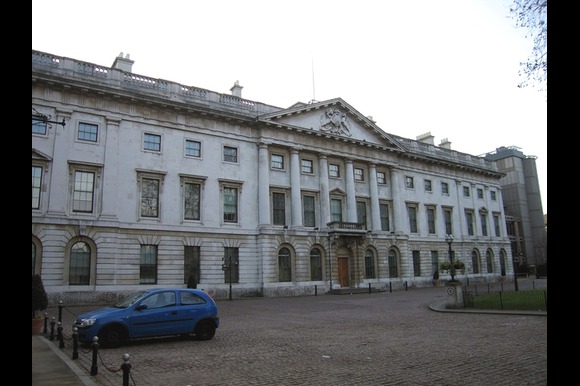The UK government is reportedly preparing to approve China’s proposal for a massive new embassy complex in central London, despite ongoing security concerns.
Although a final ruling has not yet been formally issued, ministers are believed to have received advice from intelligence agencies that effectively clears the way for the project to move forward, according to a report initially published by The Times. The development has intensified debate over whether deepening ties with Beijing is in Britain’s best interests.
The planning application—classified as a quasi-judicial decision—rests with Housing Secretary Steve Reed. However, given the sensitive nature of the issue, multiple parties, including MI5 and MI6, have been involved in the consultation process. The decision has been repeatedly delayed, with the government extending the latest deadline to 10 December.
The proposed site at Royal Mint Court is located near the City of London and close to fibre optic lines that carry highly sensitive data, fuelling fears that it could serve as an espionage hub. At approximately 20,000 square metres, the embassy would become the largest in Europe.
Some officials argue that consolidating operations into one location may offer improved oversight compared to maintaining multiple sites across London. There is also recognition within government circles that rejecting a long-anticipated request from China could strain diplomatic relations.
However, Conservative shadow foreign secretary Dame Priti Patel has warned that approval could jeopardise national security, accusing Prime Minister Sir Keir Starmer of being “desperate and unprincipled”.
The Chinese Embassy in London has claimed the new complex would help strengthen “mutually beneficial cooperation” between China and the UK, dismissing objections as groundless. Since taking power following last year’s general election, Labour has attempted to reset relations with Beijing.
Several senior ministers—including Chancellor Rachel Reeves, Business Secretary Peter Kyle, and Foreign Office Permanent Secretary Sir Olly Robbins—have already travelled to China. Prime Minister Starmer is expected to make a visit himself, potentially as early as next year, though he told reporters en route to the G20 Summit in Johannesburg that no trip has been confirmed.
He maintained that the government’s strategy toward China remains unchanged: “cooperate where we can and challenge where we must, particularly on national security”.
Critics, however, argue that the government remains overly accommodating to Beijing and is failing to recognise the severity of the potential threat.
Dame Priti Patel added: “It beggars belief that Starmer is jetting off to Beijing just months after the case against the alleged Chinese spies collapsed on his watch. Keir Starmer is so weak, and our economy so precarious, that Labour feels it must kowtow to China at every opportunity, regardless of the cost to our country.”
In September, a case involving two men—including a former parliamentary researcher accused of spying for China—collapsed in controversial fashion. Both accused denied wrongdoing. Prosecutors said the case was dropped because they were unable to obtain evidence from the government explicitly identifying China as a national security risk.
Ministers responded with frustration, attributing the case’s failure to outdated national security legislation and the actions of the prior Conservative administration.
Earlier this week, MI5 issued a fresh security warning to MPs and members of the House of Lords, alerting them to a heightened risk of espionage by the Chinese state. According to the advisory, individuals acting for the Chinese Ministry of State Security have been impersonating “headhunters” on platforms such as LinkedIn in an attempt to gather confidential political information.
China has dismissed the allegations as “pure fabrication.”






